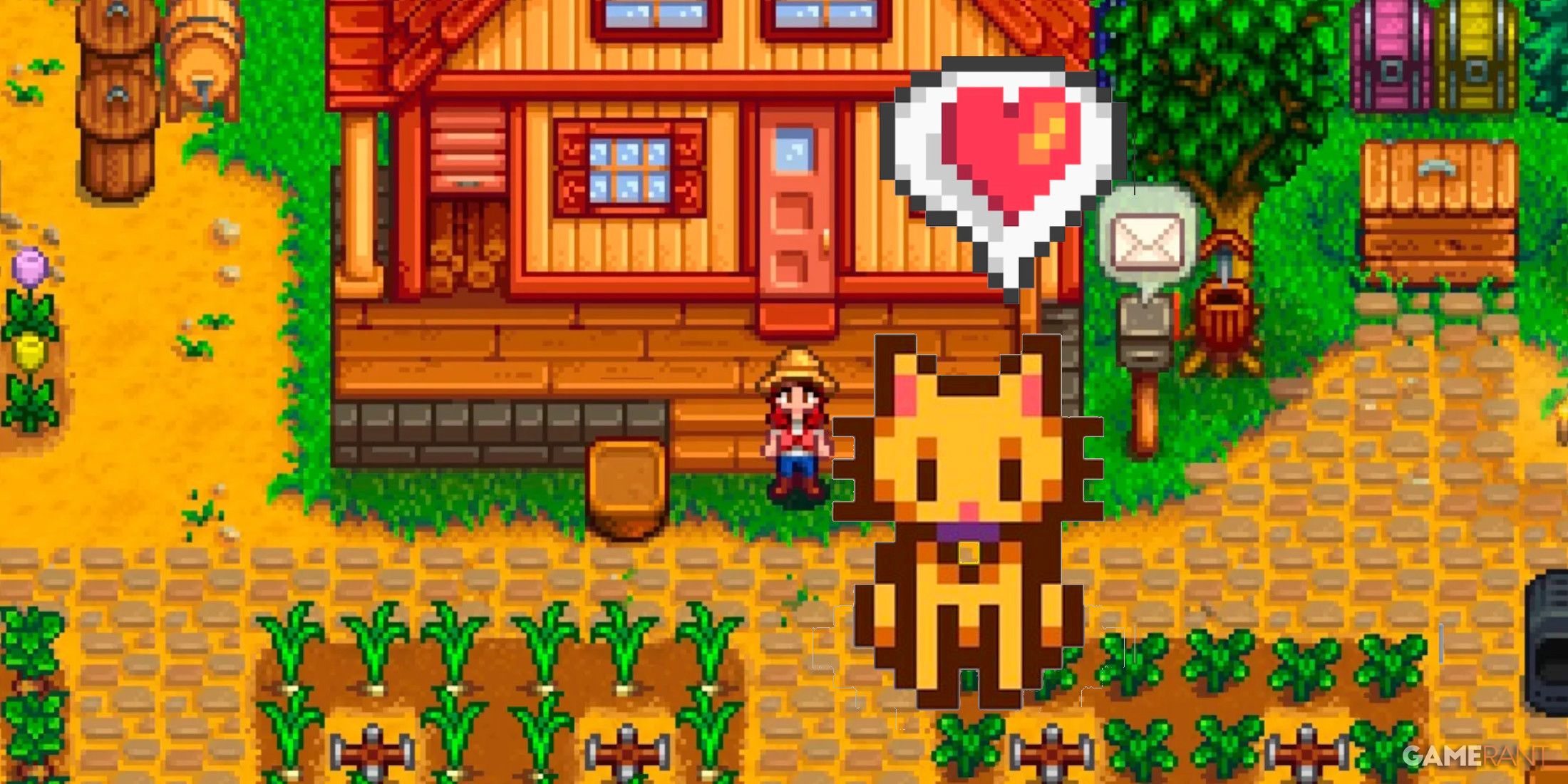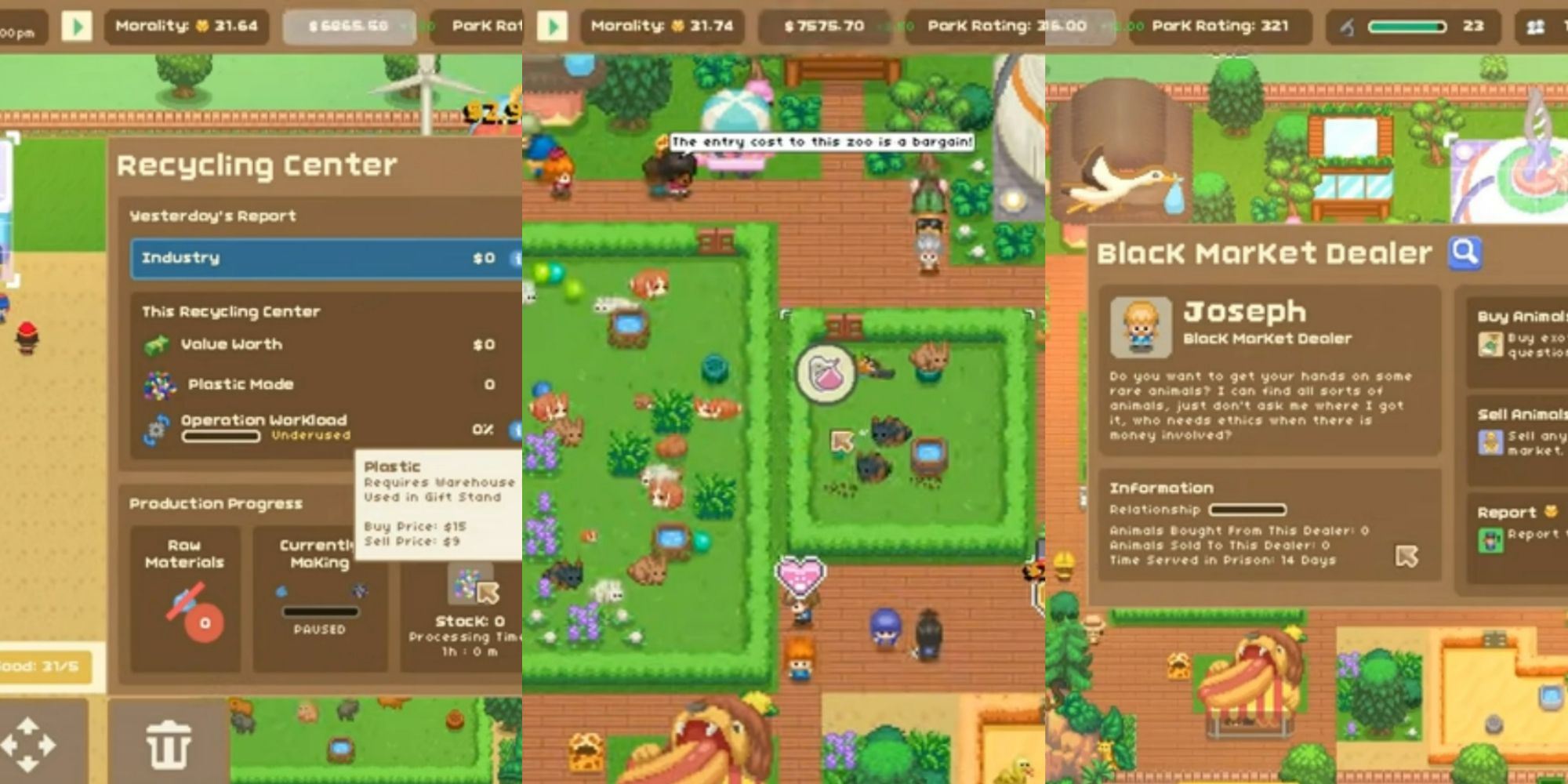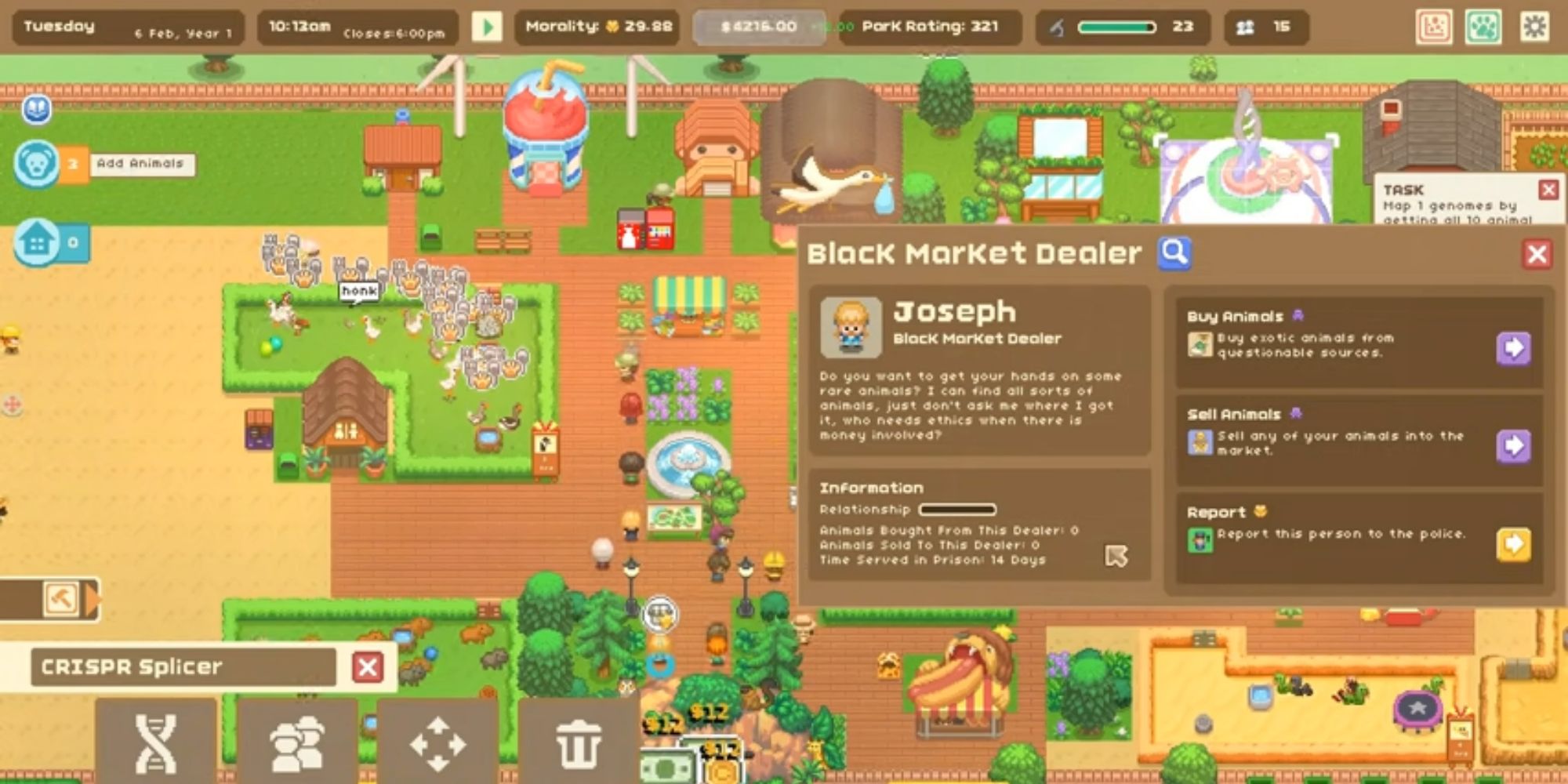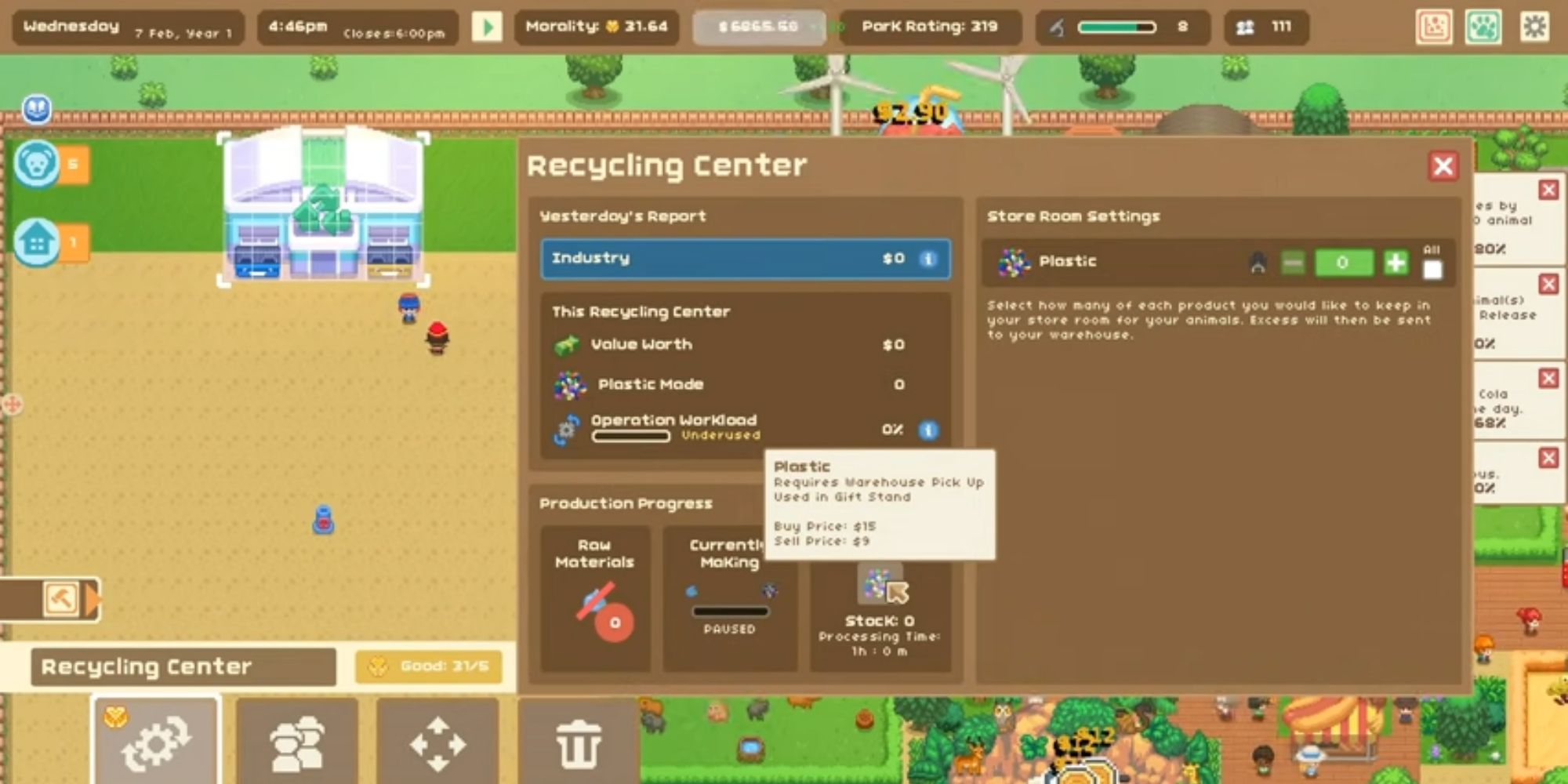Plenty of games give players the chance to raise animals, but not many of them test the player's conscience. The difference between a loving animal rehab and a seedy meat market is a stark one, and it's up to the player which direction to go in.
Let's Build a Zoo is unique among zoo sims in that it includes a fully fleshed-out morality system that affects numerous parts of the game, including what options the player has in quests, what buildings can be constructed, and how certain characters behave. When the battle is between good and evil, the stakes are high. Here's everything the player needs to know about how to tip the scales toward good.
Morality Categories
Every action with moral weight earns either positive or negative morality points. Positive morality points represent kindness and nurturing while negative points represent cruelty and indifference. There are some unique options available regardless of which path the player takes, but most players are likely to opt for the good route. That's the only way to unlock positive research options such as the Release Hub and Recycling Center. To understand how to be good in Let's Make a Zoo, the player first has to understand how the game categorizes moral decisions.
Moral decisions fall into four categories: Animals, People, Business, and Pollution. Though determining what actions within each category are considered positive is largely a matter of common sense, it's important to keep the total weight of one's decisions in mind. If one is making positive decisions regarding their zoo animals while simultaneously mistreating their employees and polluting the environment, the player's morality is going to be mixed at best.
How To Get Positive Morality Points
There are several actions that the player can take within each of the four categories to earn morality points. Given that zoos are all about animals, it makes sense to think about how the animals are treated first. Animals will breed in captivity, sometimes resulting in the player having more of a given animal than they can take care of. In this situation, the player can either euthanize the animal or donate it to another zoo. When shooting for positive points, always donate. If the player elects to keep baby animals around, they will need to decide how much nursing time to give them. Giving newborns more time with their mothers is a sure way to get positive points, as is reporting black market traders to the police.
The player can alter their animals' diet in the Storage Room, opting for cheaper or more expensive (but more nutritious) options. To get positive morality points, increase the amount of high-quality food in their diet as long as it's affordable. It can be easy to bankrupt oneself by going all premium, all the time, but animals can be well cared for by incorporating smaller amounts of high-quality food into their usual diet.
Another point on which this excellent life sim is correct is that animals don't enjoy eating cheap food, and humans don't either, so improve the quality of the food available at shops. Take care of employees by paying them above the market rate. Putting the well-being of employees ahead of one's own pocketbook is one of the best ways in the game to get positive morality points.
The player will be faced with a variety of critical choices throughout the game, some of which are marked as being good. Unsurprisingly, if the player decides to go the good route in those moments, they will be rewarded with positive morality points. Keeping the zoo clean and orderly is also important for positive morality, so make sure to clean regularly, handle the garbage, and recycle. Do all these things and the zoo will be a delight for animal lovers everywhere.
Let's Build a Zoo is available for PC, PlayStation 4, PlayStation 5, Xbox Series X/S, and Nintendo Switch.






